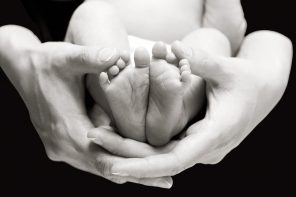This is the season of miracles. Christians recently rejoiced on the day of their Savior’s resurrection, nature’s rebirth is underway, and Jews are about to celebrate our freedom from slavery and the Exodus from Egypt.
Last year at this time, I fretted that I felt like Pharaoh. In dealing with our older daughter’s unexplained health issues, I felt suddenly powerless. That feeling had not been typical of my experience as a parent, nor was it comfortable.
We saw a stream of doctors who weren’t entirely sure why our preschooler repeatedly passed out. They ran endless tests, found no answers, and kept sending us home insisting that it was nothing. I knew they were wrong. However, without medical training, I couldn’t offer them anything more concrete than detailed descriptions of each episode and my gut-level sense that the doctors needed to keep looking. Something was wrong.
I was vividly reminded of this experience that defined much of 2015 for our family, while watching the incredibly powerful movie Miracles From Heaven. The movie tells the story of Texas’ Beam family. Out of nowhere, the Beams’ middle daughter Annabel becomes ill. She can’t keep food down. She suffers constant pain. She spends increasing amounts of time with doctors, some of whom dismiss her problem as something simple, like lactose intolerance. But it’s not, and with the intuition of a tuned-in mother, Christy Beam is sure it’s not. She repeatedly presses and advocates for her daughter. She insists that the doctors take her daughter’s medical issues seriously. She feels the urgency, and so do we.
Jennifer Garner, who plays Christy Beam, made the movie a very real experience for me — perhaps a little too real. I’ve never met Garner, nor do I know if she has ever struggled with watching one of her children suffer from a debilitating ailment. However, Garner was so convincing, I forgot I was watching an actress in a movie; everything felt incredibly real.
The Beams’ experience is by no means a recitation of our own family’s story, but there were a number of things that rang incredibly true. For example, the sense of frustration and fear as a parent, who is unsure how to help; the complete dedication of one’s energy to advocating for your child with medical staff; the pain of watching one’s own child suffer; the inexplicable nature of such suffering; the crisis of faith that may result from the experience, as well as the restoration of that faith, as members of the community insist on helping, even as the affected family is tempted to turn away offers to help, lest they seem burdensome.
One of the most poignant moments in the movie was watching a hospitalized Annabel talk to her pediatric roommate, Haley, who is dying of Cancer. Haley, who was raised without religion, notices Annabel’s calm composure, as well as her attachment to her crucifix necklace. After a short exchange about the necklace, what it means to Annabel, and why she isn’t afraid to die as a result, Annabel decides to give the necklace to Haley. Haley is touched, and as we later learn from her father, that necklace gives Haley new courage and peace, as her health deteriorates.
When our own daughter was hospitalized last June, she and her roommate, who was an even younger toddler, communicated and shared in their own way. We were appreciative when the family on the other side of the room – the side that controlled the room’s movie-playing TV – agreed to let our daughter watch Frozen. Our daughter had never seen the film before, but by the time we left the hospital, she had watched it endlessly.
Frozen was one of the few things that lifted our uncharacteristically deflated girl’s spirits, while the days dragged on and she remained cooped up in her hospital wing, unable to move too far, lest her mobile monitor go out of range. We will never forget that other family’s simple kindness.
A second truly memorable scene in Miracles From Heaven shows Christy Beam, who had left her church during her daughter’s sickness, telling her fellow congregants, “Miracles are all around us.” I believe she’s right.
Several congregations, including our own, added our daughter to their Mi Sheberach lists and prayed regularly for her health, simultaneously helping to lift our spirits. Meanwhile, our Rabbi introduced us to a doctor at the local hospital who was able to advise us about navigating the hospital’s bureaucracy.
Last June, when we returned home from the hospital, we were graced with dinner deliveries from our preschooler’s classmates. We hadn’t asked. Their families insisted, and we were grateful; I especially appreciated not having to cook when I was so exhausted.
That hospital stay had included the local medical expert advising that serious surgery was the sole solution. When we balked, our Rabbi helped us find another doctor at another hospital who was a better fit for our family.
Our new doctor has been a blessing. Like Dr. Nurko, the wise and personable doctor Annabel regularly journeys to Boston to see in the movie, our doctor is a knowledgable, calming presence. She has helped us manage our preschooler’s health issues. And that crucial surgery we were urged to do last June? It’s never been necessary.
As I sit at the Passover Seders this weekend, I expect the Haggadah’s repeated reminder that “G‑d took us from Egypt with a mighty hand and an outstretched arm” will hold new meaning for me.
Last Passover was like my Egypt. The future was frightening and filled with countless unknowns. Today, our daughter’s health issues have receded from our daily concerns, and our family is more likely to recall the countless kindnesses we’ve experienced from friends and strangers alike. While these gestures – and our daughter’s improved health – may not be as singular as the Ten Plagues or the parting of the Sea of Reeds, they are miracles nonetheless, reaffirming my belief that G-d is mighty indeed.
Melissa Langsam Braunstein is an independent writer and communications strategist in Washington, DC, as well as a staff writer for the cultural blog Acculturated and a contributing writer for the parenting blog Kveller.
Photo credit: Mark Goebel





